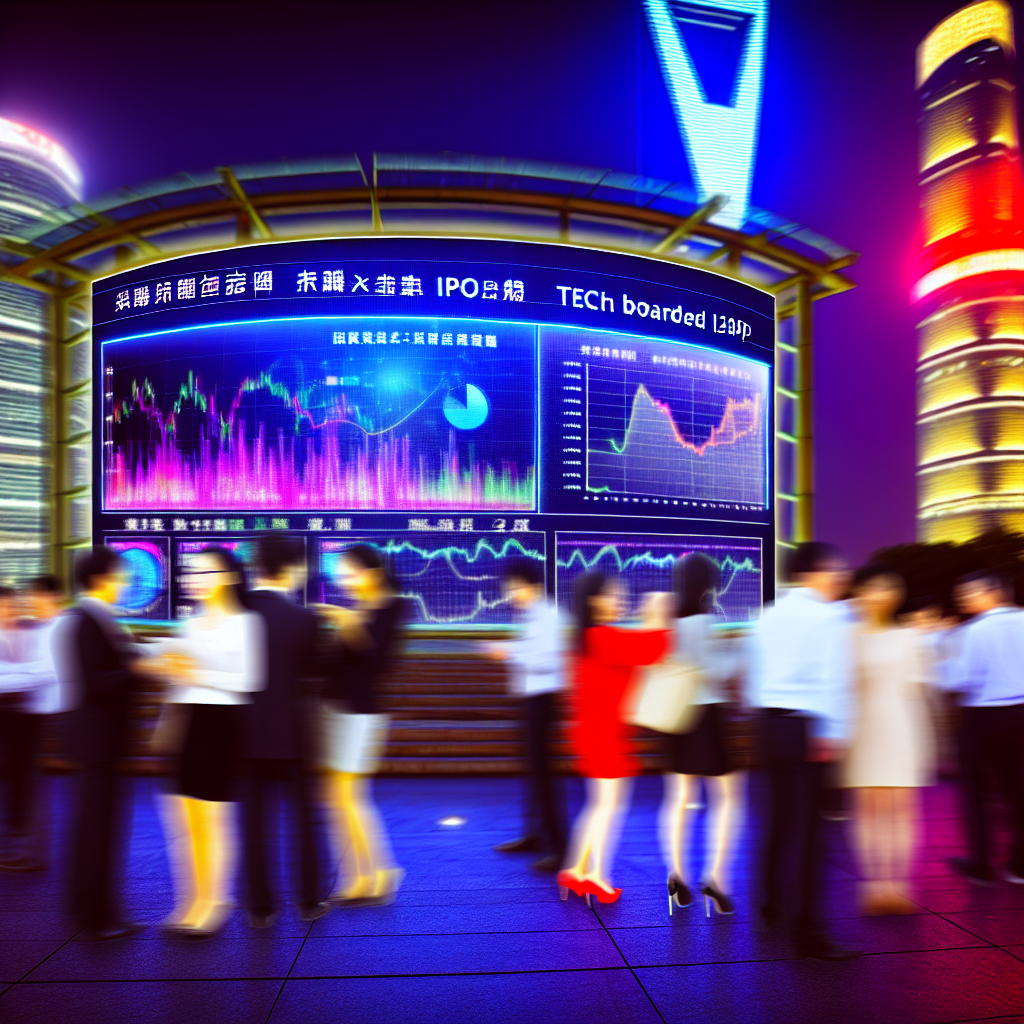Shanghai’s Tech Board Welcomes Record Number of New IPOs
The Shanghai Stock Exchange’s STAR Market, often referred to as Shanghai’s tech board, has recently witnessed an unprecedented surge in initial public offerings (IPOs). This influx of new listings marks a significant milestone for China’s burgeoning technology sector and reflects the government’s commitment to fostering innovation-driven growth. In this article, we explore the factors behind this record-breaking wave of IPOs, highlight notable companies that have gone public, and analyze the broader implications for investors and the global tech landscape.
Understanding the STAR Market’s Role in China’s Tech Ecosystem
Launched in July 2019, the STAR Market was designed to support high-tech and strategically emerging industries by providing a more flexible and market-oriented listing environment compared to traditional Chinese stock exchanges. It aims to attract innovative companies, particularly in sectors such as semiconductors, biotechnology, artificial intelligence, and new energy vehicles.
Key features of the STAR Market include:
- Registration-based IPO system: This streamlines the approval process, allowing companies to go public more quickly.
- Relaxed profitability requirements: Startups and pre-profit companies can list, encouraging innovation-driven firms to access capital.
- Enhanced investor protections: Measures such as stricter disclosure requirements and penalties for misinformation help maintain market integrity.
Record Number of IPOs in 2024: What’s Driving the Surge?
In the first half of 2024 alone, the STAR Market welcomed over 60 new IPOs, surpassing previous annual records. Several factors contribute to this surge:
- Government Support: China’s strategic focus on technological self-reliance has led to increased funding and policy incentives for tech firms.
- Robust Investor Appetite: Domestic and international investors are eager to tap into China’s innovation economy, driving demand for new tech stocks.
- Improved Market Infrastructure: The STAR Market’s registration system and regulatory reforms have reduced barriers to listing.
- Global Tech Tensions: Amid ongoing geopolitical uncertainties, Chinese tech companies are seeking domestic capital markets to reduce reliance on foreign exchanges.
Notable IPOs and Case Studies
Several high-profile companies have recently debuted on the STAR Market, showcasing the diversity and potential of China’s tech sector:
- Horizon Robotics: A leading AI chipmaker specializing in autonomous driving solutions, Horizon Robotics raised $1.2 billion in its IPO, reflecting strong investor confidence in AI technologies.
- Genor Biopharma: This biotech firm focuses on innovative cancer therapies and secured $800 million through its public offering, highlighting the growing importance of healthcare innovation.
- Envision Energy: A new energy vehicle and smart energy management company, Envision’s IPO raised $950 million, underscoring China’s commitment to green technology.
These examples illustrate the STAR Market’s role as a launchpad for companies at the forefront of technological advancement, providing them with the capital needed to scale and compete globally.
Implications for Investors and the Global Market
The influx of IPOs on the STAR Market presents both opportunities and challenges for investors:
- Access to Innovation: Investors gain exposure to cutting-edge technologies and high-growth sectors that may not be available on other exchanges.
- Volatility and Risk: Many newly listed companies are in early stages with uncertain profitability, requiring careful due diligence.
- Geopolitical Considerations: International investors must navigate regulatory and political complexities associated with Chinese markets.
On a global scale, the STAR Market’s growth signals China’s increasing influence in the technology sector. It also intensifies competition with established tech hubs in the US, Europe, and other parts of Asia, potentially reshaping the global innovation landscape.
Conclusion: A New Era for Shanghai’s Tech Board
The record number of IPOs on Shanghai’s STAR Market in 2024 underscores the rapid evolution of China’s technology ecosystem and the effectiveness of market reforms aimed at fostering innovation. With strong government backing, a supportive regulatory environment, and growing investor interest, the STAR Market is poised to become a central hub for tech companies seeking capital and global recognition.
For investors, this trend offers exciting opportunities to participate in the growth of next-generation technologies, albeit with a need for prudent risk management. As the STAR Market continues to mature, it will likely play a pivotal role in shaping the future of technology both within China and on the world stage.





